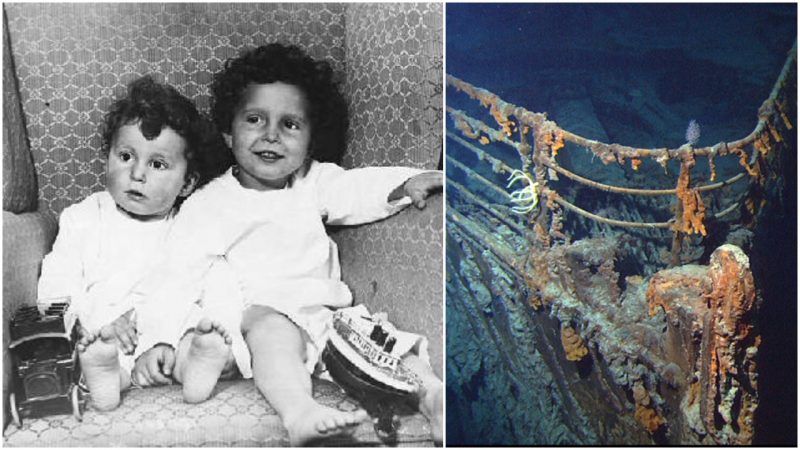On Wednesday, April 10, 1912, Mr. Michel Navratil, a tailor born in Slovakia who later moved to France, boarded the Titanic at Southampton, along with his two sons. He would register the family of three under the false surname of Hoffman, claiming that his wife had passed away and that the boys were called Louis and Lola (another source says they were Loto and Louis), the first of whom was almost four years old, and the second a bit older than two.
What the father didn’t know when he entered the second-class cabin with his sons was that these were the last days of his life. Or that his little sons would end up being the only children rescued from the maritime tragedy without any parent or other adult accompanying them.
The real names of the boys were Michel and Edmond, and in the wake of the Titanic tragedy, they became known as the Titanic orphans. However, they did have a mother, Italian by origin, by the name of Marcelle Caretto. Michel senior (the father) and Marcelle had separated earlier that year after a couple of years in marriage, raising their children, presumably in Nice, France. One of the alleged reasons for the separation was Marcelle getting involved with another man.
As the family broke up, full custody of the children was given to the mother and the father got to see them on weekends. Which was why he had the children with him for Easter of 1912. When Marcelle returned to collect the boys after the Easter weekend, she found out that all three had vanished. Did their father kidnap them? Apparently, yes. Marcelle did not know that her ex-husband had plans to take the children with him to the United States.
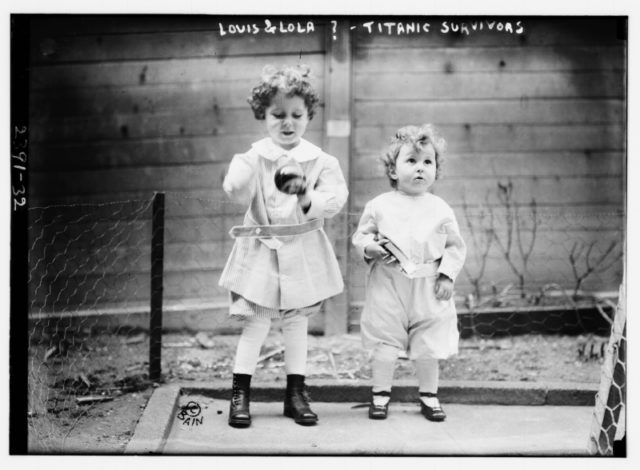
Mr. Navratil had a short stay with his sons in Monte Carlo, after which they headed to London, where they spent a night at the Charing Cross Hotel, before finally traveling to Southampton. On the ship of dreams, the father would rarely let the children out of his sight, as he feared that someone might crack open his secret.
Michel Junior and his brother Edmond were, of course, too young to understand what was happening at any point of the journey. The last time they saw their father was on the night of April 14, when he placed them on the last safe lifeboat, Collapsible D, moments before the Titanic headed for its ultimate destination at the bottom of the ocean.
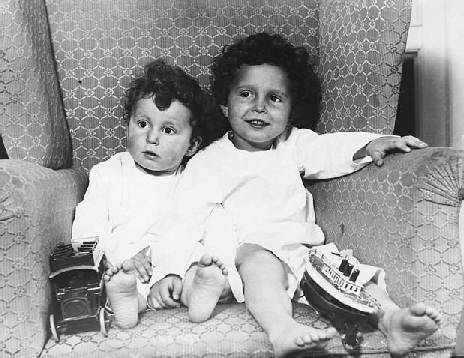
Reportedly, at the instance of saying his final goodbye, the father shouted one last message to his older son: “My child, when your mother comes for you, as she surely will, tell her that I loved her dearly and still do. Tell her I expected her to follow us so that we might all live happily together in the peace and freedom of the New World.”
The body of the boys’ father was later recovered, and as it was assumed he was Jewish, after the name inscribed on the ticket found among the items in his pockets. He was buried at the designated cemetery for Jewish victims, at the Baron de Hirsh Cemetery in Halifax, Nova Scotia. Michel and Edmond survived the night, finding themselves among the 700 people who were rescued by the Carpathia the morning after. They didn’t speak English, hence a French-speaking passenger who traveled first-class named Margaret Hays offered to help and sheltered them in her home in New York.
After the Titanic disaster, several newspapers issued photographs of the boys, informing the public that they are awaiting their mother or family members to take them. Some people sadly believed that Michel and Edmond were theirs, such as Mr. Frank Lefebvre who traveled all the way from Iowa to New York believing that the two were his sons. He had lost his wife, Marie Lefebvre, and four of their own children in the disaster. Other people wanted to adopt the boys, but eventually they were reunited with their mother.
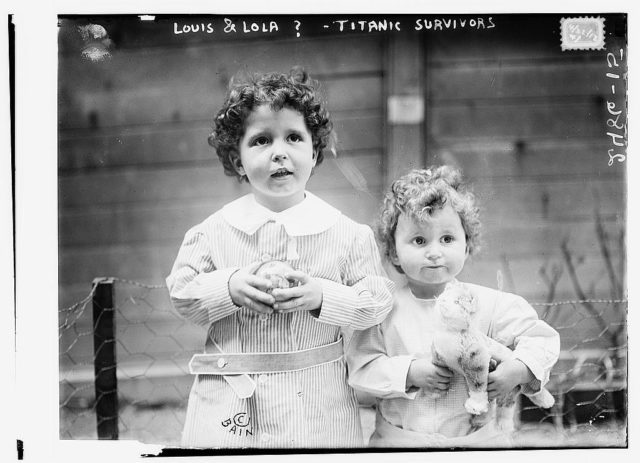
It must have been a profound relief for Ms. Caretto that her sons were safe and sound, though they had been found on the other side of the Atlantic Ocean. After she was tracked down as the mother of the “Titanic orphans,” she was given a free ticket by the White Star Line to reach New York. She saw her sons on May 16, 1912, a full month and a day after the ship’s sinking.
The older brother, Michel, would later recall the journey on the Titanic. Encyclopedia Titanica reports that he described the Titanic as a “magnificent ship,” saying: “I remember looking down the length of the hull–the ship looked splendid. My brother and I played on the forward deck and were thrilled to be there. One morning, my father, my brother, and I were eating eggs in the second-class dining room. The sea was stunning. My feeling was one of a total and utter well-being.”
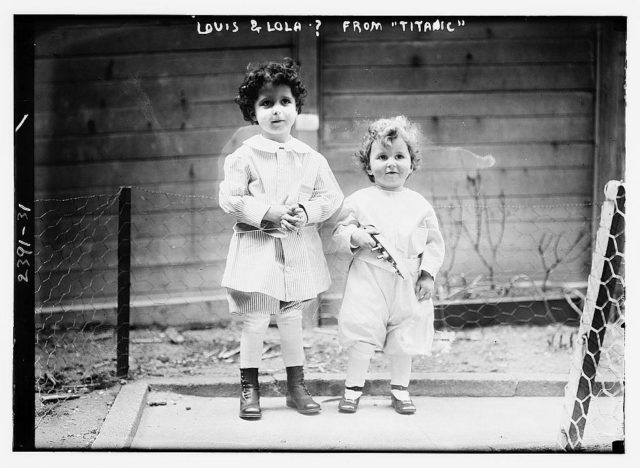
Besides the pleasant ones, he had also shared some of the darker memories, such as the moments when evacuation had begun on board: “My father entered our cabin where we were sleeping. He dressed me very warmly and took me in his arms. A stranger did the same for my brother. When I think of it now, I am very moved. They knew they were going to die.”
When in the lifeboat, he had remembered sitting next to the daughter of a banker from America who had even managed to take her dog with her. “No one objected,” he commented about the dog. “There were vast differences of people’s wealth on the ship, and I realized later that if we hadn’t been in second-class, we’d of died. The people who came out alive often cheated and were aggressive, the honest didn’t stand a chance.”
In the lifeboat, the two brothers fell asleep, waking up only in the morning to see the Carpathia and to find themselves hauled on-board in burlap bags. “I thought it was extremely incorrect to be in a burlap bag!” Michel said. He passed away in 2001, at the age of 92, a Ph.D. in philosophy. The younger brother, Edmond was a World War II veteran and also survived as a prisoner of war. He passed away in the early 1950s.
